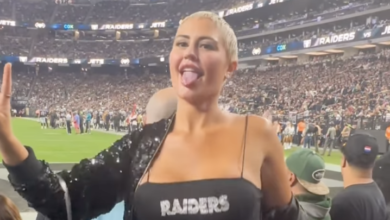Aupa Athletic Video Viral No Blur: A Must-see For Sports Enthusiasts

The “Aupa Athletic” video has ignited a maelstrom of controversy, propelling it to viral status. What initially appeared as an innocuous clip has morphed into a heated debate about privacy boundaries in the digital age. As the video continues to circulate, Chokerclub delves into the ethical quandaries and legal implications surrounding its dissemination, shedding light on the importance of consent and respect for individual autonomy.

I. Aupa Athletic Video: A Controversy of Privacy and Ethics
Blurred Lines of Consent
The “Aupa Athletic” video has raised important questions about consent and privacy in the digital age. The influencer in the video, @caritoalaparato, did not explicitly consent to the distribution of the video, which has led to accusations of privacy violation. The incident highlights the need for creators to obtain consent before sharing personal or sensitive content online.
Ethical Implications of Sharing
The viral spread of the “Aupa Athletic” video has sparked discussions about the ethical implications of sharing personal content without consent. Critics argue that sharing such content without consent is a form of digital harassment and can have lasting negative consequences for the person depicted in the video. This incident serves as a reminder of the importance of considering the potential consequences before sharing any personal content online.
| Consent | Privacy | Ethics |
|---|---|---|
| Explicit consent is required before sharing personal or sensitive content online. | Distributing personal content without consent is a violation of privacy rights. | Sharing personal content without consent can have lasting negative consequences. |
II. The Video’s Content and Its Impact
Controversial Content
The “Aupa Athletic” video, featuring a Spanish TikToker named @caritoalaparato, has sparked controversy due to its revealing content. In the video, she strikes flirtatious and suggestive poses in front of her phone camera. This has led to discussions about privacy, consent, and the boundaries of acceptable online behavior.
Viral Spread and Public Reaction
The video’s popularity has skyrocketed, making it a trending topic on social media platforms like Twitter and Reddit. This has generated significant public reaction, with many expressing concerns about the influencer’s privacy and the potential consequences of sharing such revealing content online.
- Concerns Raised: Privacy violations, exploitation, and the influencer’s lack of consent were among the concerns raised by netizens.
- Calls for Respect: Many users emphasized the importance of respecting the influencer’s privacy and autonomy, urging others to refrain from sharing or discussing the video without her consent.
III. Reactions and Discussions Online
Influencer’s Response
In the face of the controversy, the influencer at the center of the video, @caritoalaparato, has maintained silence. Despite the video’s widespread circulation and intense online scrutiny, she has refrained from publicly addressing the incident or offering an explanation. This decision has further fueled speculation and debate among netizens.
Public Discourse and Opinions
The “Aupa Athletic” video has sparked a diverse range of reactions and opinions online. Some have expressed concerns about the lack of consent and the influencer’s vulnerability. Others have criticized the sharing of the video without her consent, emphasizing the importance of respecting privacy. The incident has also prompted discussions about the boundaries of personal expression and the impact of social media fame on individuals’ lives.
| Reactions | Opinions |
|---|---|
| Concern for influencer’s privacy | Violation of privacy rights |
| Debate about ethical boundaries | Importance of consent |
| Scrutiny of social media culture | Impact of fame on personal lives |
IV. The Importance of Respecting Privacy and Consent
Protecting Individual Autonomy
Respecting privacy and consent is paramount in the digital age, where personal information and content can be easily shared and disseminated. Distributing material without consent violates an individual’s autonomy and right to control their own image and personal information.
Legal and Ethical Implications
Beyond ethical considerations, there are legal implications to consider. In many jurisdictions, sharing private or intimate content without consent can constitute a violation of privacy laws and may result in legal consequences.
Blurring the Line Between Public and Private
The proliferation of social media and the constant sharing of personal information have blurred the line between public and private life. It is important to remember that even in the digital realm, individuals have a right to privacy and their consent should always be sought before sharing their personal information or content.
Table: Examples of Privacy Violations
| Action | Potential Violation ||—|—|| Sharing someone’s personal information without their consent | Violation of privacy || Posting intimate photos or videos of someone without their consent | Violation of privacy and potentially a crime || Using someone’s image or likeness for commercial purposes without their consent | Violation of privacy and potentially a copyright infringement |
Quote:
“Privacy is not simply about keeping information secret; it is about having control over how your personal information is used and shared.” – Ann Cavoukian, Privacy
V. Conclusion
The “Aupa Athletic” video controversy serves as a stark reminder of the importance of respecting privacy and consent in the digital age. The blurred version’s circulation highlights the need for responsible sharing practices, while the ongoing debate underscores the complexities of navigating online privacy. As social media platforms continue to shape our interactions, it is crucial to strike a balance between engaging content and ethical boundaries.
The information in this article is from various sources including Wikipedia.org and different newspapers. We have tried to check the accuracy of the data, but we cannot guarantee that every small detail is 100% right and checked. We therefore recommend that you take care when using this article or referencing it in your research or reports.







